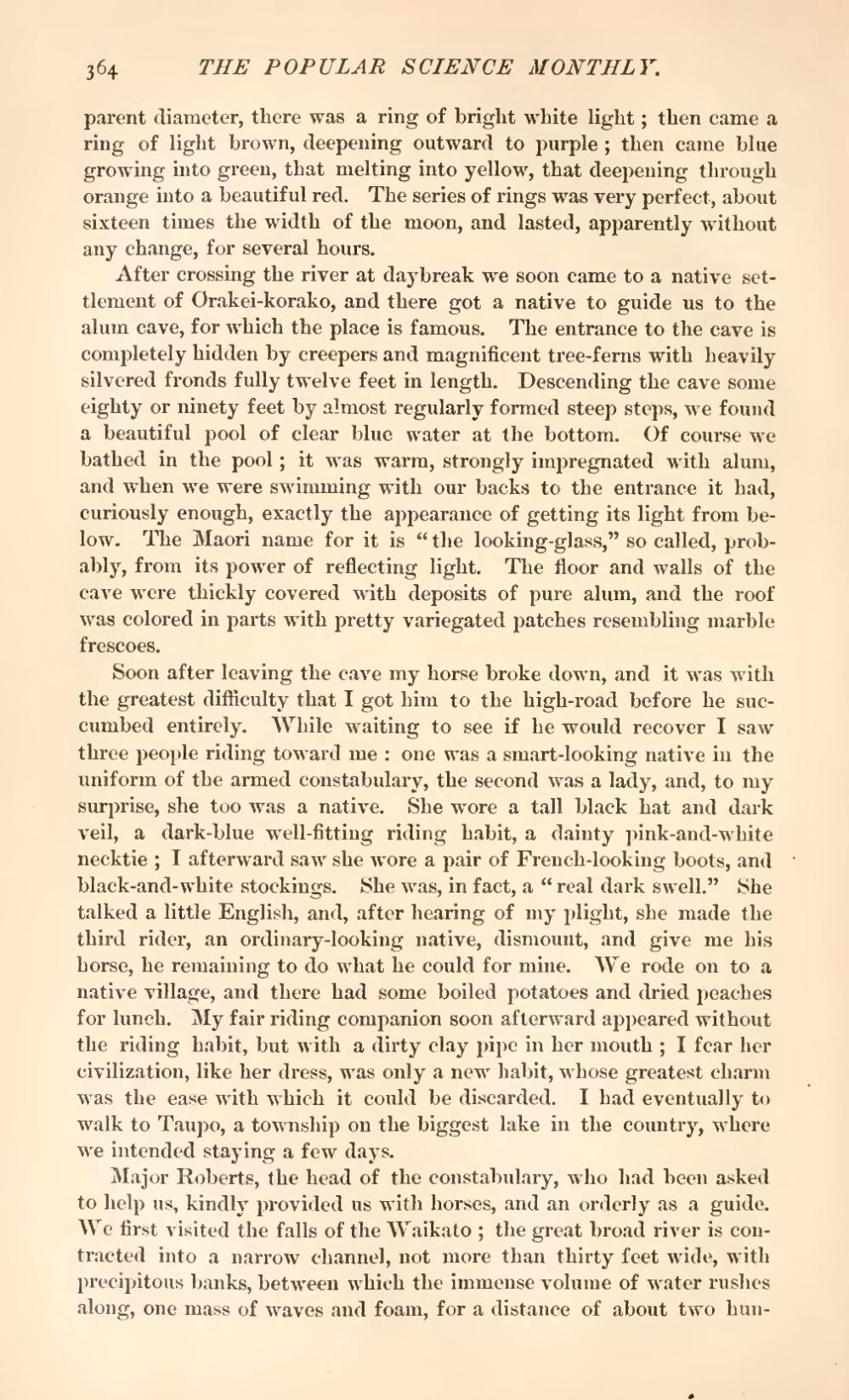parent diameter, there was a ring of bright white light; then came a ring of light brown, deepening outward to purple; then came blue growing into green, that melting into yellow, that deepening through orange into a beautiful red. The series of rings was very perfect, about sixteen times the width of the moon, and lasted, apparently without any change, for several hours.
After crossing the river at daybreak we soon came to a native settlement of Orakei-korako, and there got a native to guide us to the alum cave, for which the place is famous. The entrance to the cave is completely hidden by creepers and magnificent tree-ferns with heavily silvered fronds fully twelve feet in length. Descending the cave some eighty or ninety feet by almost regularly formed steep steps, we found a beautiful pool of clear blue water at the bottom. Of course we bathed in the pool; it was warm, strongly impregnated with alum, and when we were swimming with our backs to the entrance it had, curiously enough, exactly the appearance of getting its light from below. The Maori name for it is "the looking-glass," so called, probably, from its power of reflecting light. The floor and walls of the cave were thickly covered with deposits of pure alum, and the roof was colored in parts with pretty variegated patches resembling marble frescoes.
Soon after leaving the cave my horse broke down, and it was with the greatest difficulty that I got him to the high-road before he succumbed entirely. While waiting to see if he would recover I saw three people riding toward me: one was a smart-looking native in the uniform of the armed constabulary, the second was a lady, and, to my surprise, she too was a native. She wore a tall black hat and dark veil, a dark-blue well-fitting riding habit, a dainty pink-and-white necktie; I afterward saw she wore a pair of French-looking boots, and black-and-white stockings. She was, in fact, a "real dark swell." She talked a little English, and, after hearing of my plight, she made the third rider, an ordinary-looking native, dismount, and give me his horse, he remaining to do what he could for mine. We rode on to a native village, and there had some boiled potatoes and dried peaches for lunch. My fair riding companion soon afterward appeared without the riding habit, but with a dirty clay pipe in her mouth; I fear her civilization, like her dress, was only a new habit, whose greatest charm was the ease with which it could be discarded. I had eventually to walk to Taupo, a township on the biggest lake in the country, where we intended staying a few days.
Major Roberts, the head of the constabulary, who had been asked to help us, kindly provided us with horses, and an orderly as a guide. We first visited the falls of the Waikato; the great broad river is contracted into a narrow channel, not more than thirty feet wide, with precipitous banks, between which the immense volume of water rushes along, one mass of waves and foam, for a distance of about two hun-
